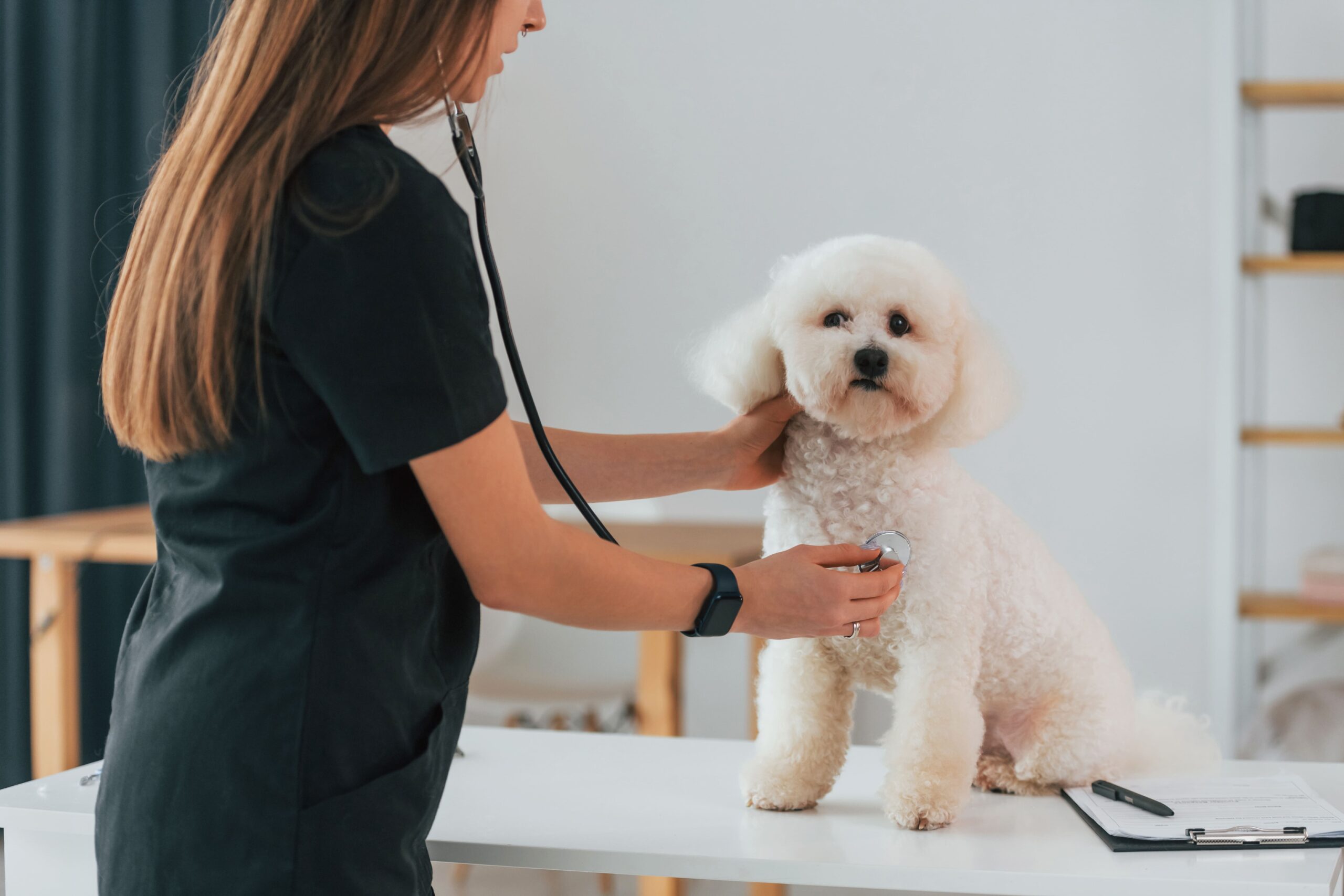How Often You Should Take Your Dog to the Vet?
As a dog owner, it’s important to understand the importance of regular vet visits for your furry friend’s health and well-being. Just like humans, dogs require regular check-ups to ensure that they are in good health and to catch any potential health issues early on.
During a vet visit, your dog will be examined by a trained professional who can assess their overall health and identify any potential concerns. The vet may also recommend certain tests or procedures to ensure that your dog is in good health, such as blood work or vaccination updates.
In addition to identifying and addressing any health issues, regular vet visits can also help to prevent potential problems from occurring in the first place. For example, your vet may recommend certain preventive measures, such as heartworm prevention or dental cleanings, to help keep your dog healthy and prevent future health issues.
Overall, regular vet visits are an essential part of responsible dog ownership and can help to ensure that your furry friend stays happy and healthy for years to come. Whether you have a young pup or an elderly dog, it’s important to make sure that your dog receives the care and attention they need to stay healthy and happy. So, it is very important to take your dog to the vet regularly.
How often to take your dog to the vet
The frequency of vet visits will depend on a variety of factors, including your dog’s age and overall health status. Here are some general recommendations for how often to take your dog to the vet:
Puppies
It is generally recommended to take puppies to the vet every 3-4 weeks during their first few months of life to ensure that they are on track with their vaccinations and to address any health concerns that may arise. After they have completed their puppy vaccination series, most veterinarians recommend annual exams.
Adult dogs
For adult dogs who are healthy and up to date on their vaccinations, it is typically recommended to take them to the vet at least once per year for a check-up and preventive care. However, if your dog has a specific health concern or chronic condition, your vet may recommend more frequent visits.
Senior dogs
As dogs age, they may be more prone to certain health issues. For this reason, it is generally recommended to take senior dogs to the vet at least twice per year for check-ups and preventive care. Your vet may also recommend more frequent visits depending on your dog’s specific needs and health status.
It’s important to keep in mind that these are just general guidelines and that the frequency of vet visits may vary depending on your dog’s individual needs. If you have any concerns about your dog’s health or well-being, it’s always a good idea to consult with your veterinarian.
Factors to consider when determining the frequency of vet visits
There are several factors to consider when determining the frequency of vet visits for your dog. These may include your dog’s:
Breed
Some breeds may be more prone to certain health issues, such as hip dysplasia or eye problems, and may require more frequent vet visits as a result.
Lifestyle
If your dog has an active lifestyle and spends a lot of time outdoors, they may be more prone to certain injuries or health issues and may benefit from more frequent vet visits. On the other hand, if your dog is mostly indoor and has a more sedentary lifestyle, they may require fewer vet visits.
Medical history
If your dog has a pre-existing medical condition or has had health issues in the past, your vet may recommend more frequent visits to monitor their condition and address any concerns that may arise.
Age
As mentioned earlier, puppies and senior dogs may require more frequent vet visits due to their increased risk of health issues.
Tips for maintaining your dog’s health between vet visits
There are several steps you can take to maintain your dog’s health between vet visits. These may include:
- Exercise: Regular exercise is important for your dog’s overall health and well-being. It can help to maintain a healthy weight, strengthen muscles, and improve cardiovascular health. Aim to provide your dog with at least 30 minutes of moderate to vigorous exercise every day, depending on their breed and age.
- Diet: A balanced diet is essential for your dog’s health. Choose a high-quality dog food that is appropriate for your dog’s age, breed, and size, and be sure to provide your dog with access to fresh water at all times.
- At-home checkups: You can perform regular at-home checkups to help ensure that your dog is in good health. This may include checking their ears, eyes, teeth, and paws, as well as feeling their abdomen to check for any abnormalities. If you notice any unusual symptoms or changes in your dog’s health, be sure to consult with your veterinarian.
By following these tips and maintaining a regular exercise routine and a balanced diet, you can help to keep your dog healthy and happy between vet visits.
Vaccinations and Preventative care
It’s important to stay up to date on vaccinations and preventative care for your dog in order to protect them from preventable diseases and parasites. Vaccinations help to stimulate your dog’s immune system to build immunity to certain diseases, while preventative care can help to prevent the transmission of parasites such as fleas, ticks, and heartworms.
By staying up to date on vaccinations and preventative care, you can help to ensure that your dog is protected from these potentially serious health threats. In addition, many states and localities have laws requiring certain vaccinations for dogs, so it’s important to check with your local authorities to ensure that your dog is in compliance.
Your veterinarian can help you determine which vaccinations and preventative measures are appropriate for your dog based on their age, lifestyle, and medical history. It’s important to follow their recommendations in order to keep your dog as healthy and protected as possible.
Conclusion
In conclusion, regular vet visits are essential for maintaining your dog’s overall health and well-being. By following the recommendations for how often to visit the vet and taking steps to maintain your dog’s health at home, you can help to ensure that your furry friend stays happy and healthy for years to come.
It’s important to remember that every dog is different, and the specific frequency of vet visits will depend on your dog’s age, breed, lifestyle, and medical history. Your veterinarian can help you determine the appropriate schedule of vet visits for your specific dog and provide guidance on how to maintain your dog’s health at home.
By taking good care of your dog and staying on top of their health needs, you can help to ensure that your furry friend is happy, healthy, and around for many years to come.
Subscribe to our weekly newsletter below and never miss the latest article.







